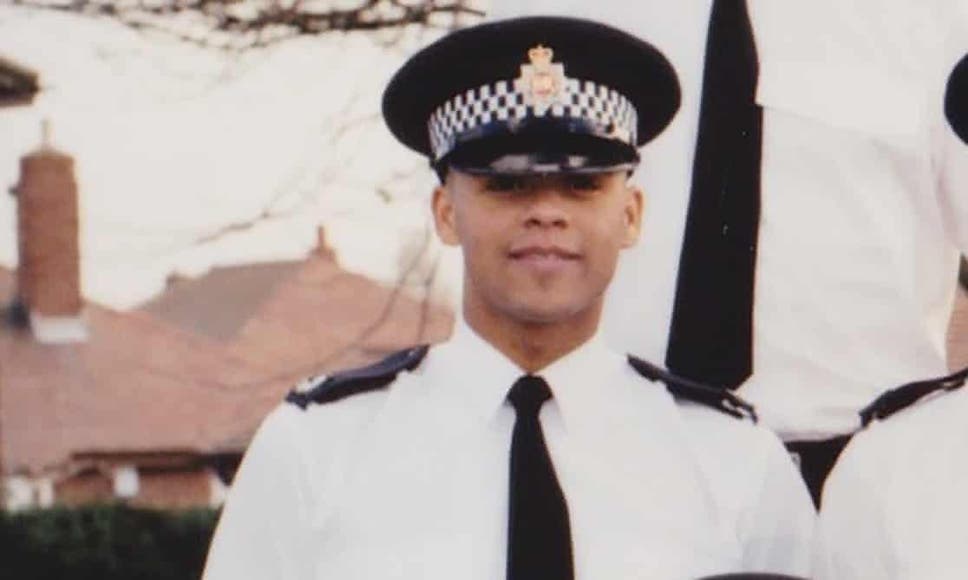
Ever since I was a young black boy in Liverpool, I dreamt of becoming blue. Years later, I would fulfil my childhood dream and become a police officer in Britain.
But as a black cop who served in both the north and south of England, the challenges I faced because of my colour were unpleasant and hostile. Racism blighted my career. If it wasn’t outright racial hatred some colleagues expressed, it was the subtleness by seniors when I was passed over for jobs.
After eight years of this and falling unwell, I decided enough was enough with racism and fought the police in the courts. It was a traumatic experience. There was me, a black gay officer, against one of the UK’s oldest and most powerful institutions, declaring to the world it was not racist. There are no winners when you fight your employer to be heard, but the court did find the police had discriminated, harassed and victimised me because I am black.
I am one of the many officers of colour who have been bullied because of how they look.
Forced out after 11 years, I began to rebuild my life. I’ve written extensively about race and policing to rid me of past pain and make things better for others, and I’ve just written a book about the continued systemic racism in Britain’s police – something the National Black Police Association agrees with.
Then, like so many people around the world, I witnessed the horrific and brutal killing of George Floyd in Minneapolis by police officer Derek Chauvin, who placed his knee on George’s neck, holding him down for nine minutes as he cried out. Reminiscent of so many black people being held down. The hurt of racism I had faced and tried to escape from came flooding back – the same feelings many black people in Britain have expressed, resulting in recents protests in the UK.
Some people think policing on the two sides of the Atlantic is different, but it’s the same. They only difference here is that our officers are not routinely armed. During my service, I routinely saw the mistreatment of black and brown people by colleagues, especially around drugs searches. Black people being less likely to use drugs than white people and yet are disproportionally criminalised for drug-related offences. Racism in the British police for black officers is bad, but for a member of the public, it is doubly negative because it destroys their belief and trust in the police as a force for good.
Before the coronavirus outbreak, black people were almost nine times more likely to be stopped and searched than white people, three times more likely to be arrested, four times more often tasered and four times more likely to be detained under the Mental Health Act. A disproportionate number of people of colour die in police custody “as a result of use of force or restraint by the police”. More than half our young people in young offenders’ institutions are black or brown.
Britons of colour continue to be disproportionately targeted with overzealous policing, being fined more than the white population under coronavirus laws. There have been numerous viral videos showing the police treating black people badly, like the man believed to be an ambulance driver who was asked to account for himself outside his home and then handcuffed by a London officer.
It pains me as a black man and former officer to speak out about these issues, but the truth is I’ve not seen enough change in the police over the past 40 years from the riots of the early 1980s. It is only by continuing to highlight bad policing that I believe one day they will listen and learn. I, as do all of us, have a duty to show the ugliness of racism and this includes in our police force, so that one day the cancer will be cut out. My worry is that if we don’t fix the systemic racism in Britain’s police the unrest we are seeing in America will happen in the UK. Black Lives Matter here too.
Black people are tired and exhausted with racism. We have had enough of seeing black bodies oppressed and brutalised by the police, and this includes at home here in Britain.
Published by The Independent on 4 June 2020.